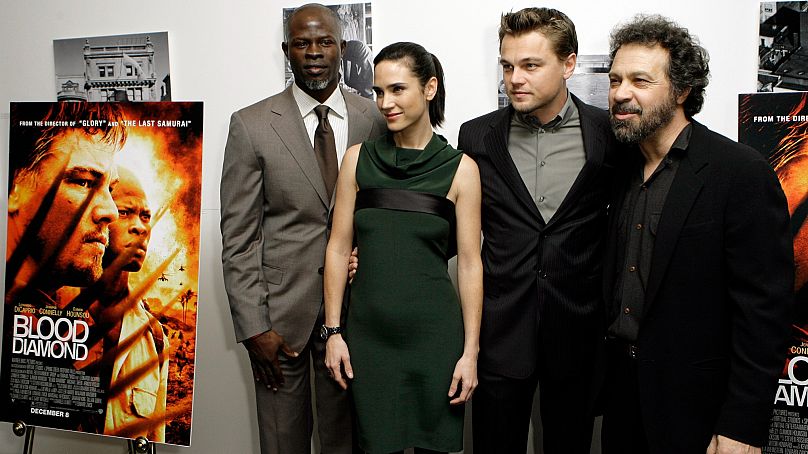The history of Africa Day is deeply rooted in the liberation movements that marked the 20th century. The starting point was in 1958, when the Congress of African States was held for the first time, a historic gathering where representatives from various countries across the continent came together with an unwavering determination: to free themselves once and for all from colonial rule.
During this pioneering conference, African leaders proposed the creation of an “African Freedom Day”, laying the foundations for what would later become a continental tradition. The meetings continued to take place year after year, strengthening ties between African nations and consolidating a common vision of independence and development.
The high point came on 25 May 1963, when the Organisation of African Unity (OAU), later transformed into today’s African Union, was officially born. This date was marked in history as Africa Day, symbolising not only the continent’s political unity, but also its shared commitment to social, economic and cultural progress.
Africa: A continent of achievements and transformations
The African continent of the 21st century presents a radically different picture from that of previous decades. Economic transformations have been particularly remarkable, with sustained growth that has placed several African nations among the fastest developing economies in the world. Countries such as Ghana, Rwanda, Ethiopia and Côte d’Ivoire have experienced growth rates that exceed the global average, demonstrating the continent’s economic potential.
Women’s participation in the economy represents one of the most significant developments in recent decades. African women have taken leading roles in business development, from small local entrepreneurs to executives of large corporations. In countries such as Rwanda, women hold more than 60% of parliamentary seats, setting a global example in terms of women’s political representation.
In the area of gender equality, Africa has seen revolutionary advances. African women now occupy leadership positions in politics, science, technology and culture. Figures such as Ellen Johnson Sirleaf, Liberia’s first female president and Nobel Peace Prize winner, or Ngozi Okonjo-Iweala, director general of the World Trade Organisation, exemplify the growing role of African women on the international stage.
The decolonisation process, significantly supported by the United Nations, culminated in the successful independence of all African nations. This historic achievement not only represented political liberation, but also opened the door for each country to shape its own destiny and develop its natural and human resources according to its own visions and needs.
Cinema as a window into the African soul
The seventh art has served as an invaluable cultural bridge to bring African realities to the rest of the world. Film productions have captured both the continent’s natural beauty and its complex social and historical realities.
Memories of Africa’ (1985)
Remains an iconic film work that transports viewers to the Kenyan landscape through Karen Blixen’s experience. This commercially successful adaptation not only showcased the majesty of African landscapes, but also explored universal themes such as love, loss and the search for identity in distant lands.
Blood Diamonds’ (2006)
It dealt with the conflicts that ravaged Sierra Leone during the 1990s with rawness and honesty. The film exposed to the world the devastating consequences of the civil war, including the plight of child soldiers and the exploitation of natural resources, contributing significantly to international awareness of these issues.
Invictus’ (2009)
Immortalised as one of the most inspiring moments in modern South African history, the film masterfully recreated how Nelson Mandela used the 1995 Rugby World Cup as a tool for national reconciliation, demonstrating the power of sport to unite a society divided by decades of apartheid.
Other notable productions include ‘Hotel Rwanda‘ (2004), which chronicled the Rwandan genocide with extraordinary sensitivity, ‘The Last King of Scotland‘ (2006), which portrayed Idi Amin’s regime in Uganda, and ‘Beasts of No Nation‘ (2015), which explored the impact of civil war on African children. More recently, ‘Black Panther‘ (2018) presented a futuristic and hopeful vision of Africa, inspiring millions of people around the world.
Celebrating Africa in the digital age
The commemoration of Africa Day has evolved with the times, adapting to new forms of communication and citizen participation. African countries organise annual cultural events, academic conferences, art exhibitions and food festivals that celebrate the continent’s diversity.
Citizen participation through social media has democratised this celebration, allowing people from all over the world to come together using hashtags such as #AfricaDay to share experiences, knowledge and reflections on the continent. This digital connectivity has facilitated cultural exchange and has contributed to demystifying stereotypes, presenting a more complete and nuanced image of contemporary African reality.






